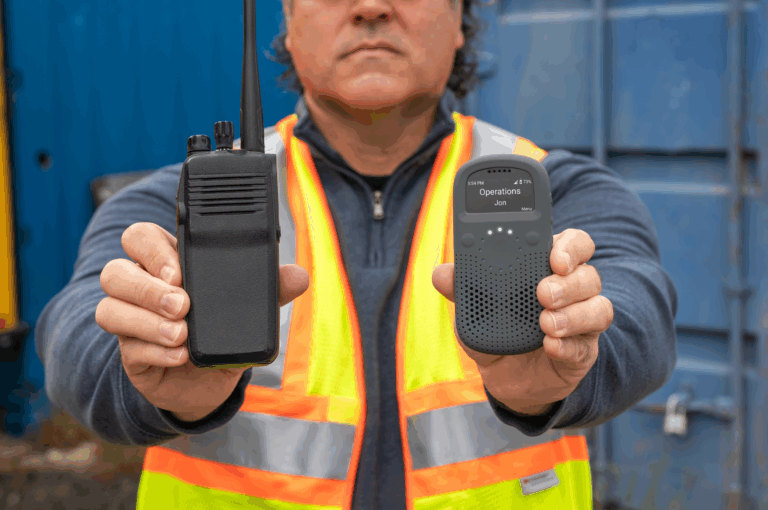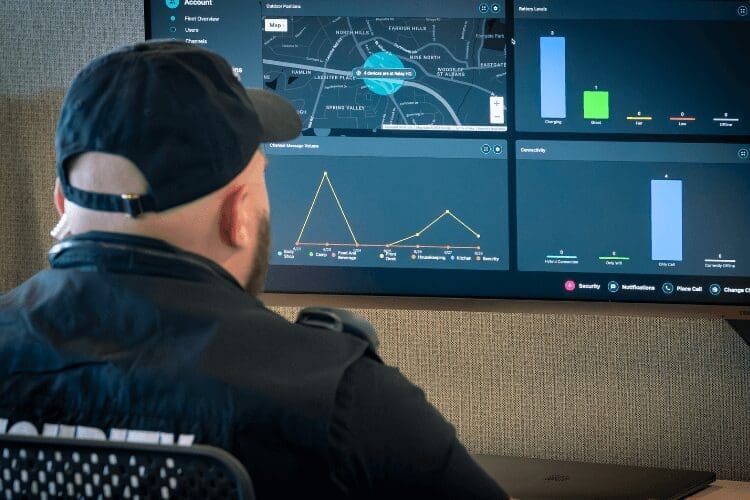The hospitality sector, where quality of service is undoubtedly tied to effective communication, is full of vibrant cultures and languages. Traditionally difficult but necessary to overcome, language barriers left unchecked can pose significant challenges that impact hotel operations. Relay’s unique communication device was designed with this in mind. Not only is it a two-way radio and personal safety alert system, but it’s also a pocket translator. The push-to-talk solution has all the tools a hospitality professional needs to bridge gaps and keep operations on track, regardless of what language they speak.
When teams are unable to communicate effectively, they face additional mistakes, safety issues, and wasted time on their property, impacting efficiency, guest satisfaction, and staff morale. As a hotel manager or staff member, it is important to be aware of these signs so that appropriate measures can be taken to ensure smooth communication takes place between guests and colleagues, regardless of their native language.
Here are five unmistakable signs that language barriers are adversely affecting hotel operations.
1. You Can’t Communicate Effectively
Effective communication is the lifeblood of smooth hotel operations. Whether it’s notifying valet that a guest is ready for their car, housekeeping that a room is missing towels, or maintenance that a pipe has burst, every message counts. However, when language barriers enter the equation, response times lengthen, and efficiency takes a hit. Staff members find themselves grappling with delayed communication, increasing their workload and leading to longer wait times for guests.
This inefficiency becomes even more pronounced during peak times when hotels are operating at full capacity and every second counts. In the luxury sector, for example, quick, streamlined, and discreet communication is essential to provide guests with the highly-personalized service they’re paying for. Addressing language barriers isn’t just about better communication; it’s about ensuring that operations run seamlessly, even in the face of linguistic challenges.
2. Errors, Inefficiencies, and Response Times Have Increased
Language barriers contribute to a higher likelihood of errors and inefficiencies within hotel operations, as well as delayed response times to guest requests and inquiries. Misinterpretation of instructions or guest preferences can lead to mistakes and delays in service delivery, room allocations, and reservation management. Picture this: a guest requests extra towels, but the message fails to reach the housekeeping team due to language differences among staff. These errors not only tarnish the hotel’s reputation but also result in wasted time and resources. Consequently, the guest experiences unnecessary delays, feeling overlooked and dissatisfied. Such scenarios not only frustrate guests but can also lead to confusion and service disruptions.
3. Staff Members Are Frustrated
Language barriers can also have a negative impact on staff morale and retention. In an industry where customer service is key, it can be frustrating for employees to not be able to effectively communicate with guests or colleagues. Even worse, this can prevent staff from earning well-deserved promotions, creating feelings of inadequacy, job dissatisfaction, and ultimately high turnover rates. High turnover rates, already too common within the hospitality industry, can be combated by making sure staff are equipped to communicate with one another regardless of their preferred language.
Providing employees with translation tools that drive conversations across languages can help alleviate these issues and improve staff happiness and retention. Alternatively, communication solutions with built-in translation help staff with language barriers while minimizing overall tech stack. Relay, for example, has two language translation functions to help improve communication in various circumstances.
4. Safety and Emergency Preparedness is Compromised
In the hotel industry, ensuring guest and staff safety is a top priority. However, language barriers can make it more challenging to effectively communicate important information and instructions during crisis situations, such as medical emergencies or severe weather. In the event one occurs, clear communication delivered quickly, in a way staff are able to understand, is crucial to ensure proper protocols are followed and everyone is kept safe. Without it, there could be confusion and delayed response times. This not only puts people’s safety at risk, but also creates liability concerns for the hotel.
Learn more about Relay’s panic and emergency response features here.
Overcoming Language Barriers with Relay
Recognizing these signs is essential for hotel management to address language barriers effectively. By investing in language training programs, implementing multilingual communication tools, and fostering a culture of diversity and inclusion, hotels can mitigate the negative impact of language barriers and optimize their operational performance for the benefit of both staff and guests. Many hotels are turning to modern, more convenient communication tools such as Relay. Relay’s new TeamTranslate™ enhancement uses real-time speech-to-speech translation capabilities, translating messages on the spot, across channels. This product upgrade allows you to set up to 31 different languages for a device.







